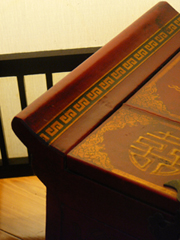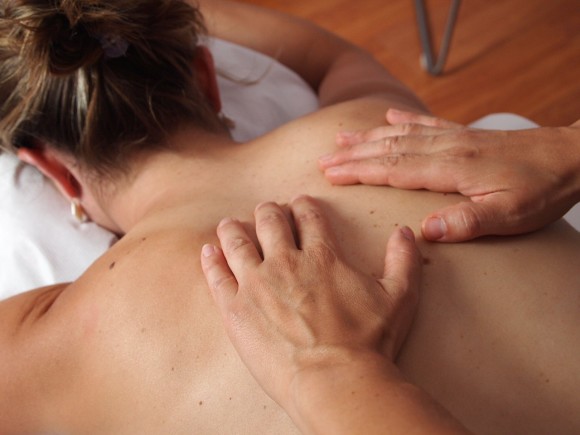Frequently asked questions
Here are some questions that people often ask me. Feel free to email me if there’s something you’d like to ask.
How does acupuncture work?
 For Western scientists, there is evidence that acupuncture works on hormones, neutrotransmitters, pain-relieving body chemicals, the stress-relaxation response, the nervous system, blood circulation, muscles and fascia. Acupuncture even changes the way that the body is mapped in the brain.
For Western scientists, there is evidence that acupuncture works on hormones, neutrotransmitters, pain-relieving body chemicals, the stress-relaxation response, the nervous system, blood circulation, muscles and fascia. Acupuncture even changes the way that the body is mapped in the brain.
There hasn’t been a study that has demonstrated any one single mode of action – that’s probably because acupuncture works on many systems at once. This is what makes it a holistic therapy – it works on the body as a whole.
Over thousands of years, Chinese doctors stimulated points on the body and noted down the effects. Over time, a consistent pattern was found – this is how we have our map of acupoints and their beneficial effects.
The foundation of acupuncture theory is Qi (or Chi – pronounced “Chee”). This is the universal energetic force that animates all life and the natural environment. During a treatment we aim to unblock stuck Qi that has been causing pain, clear away excess Qi that is creating Heat, stimulate weak areas to bring energy and warmth, invigorate sluggish areas to cleanse and refresh, and so on.
Acupoints are special places on the body that communicate to other parts of the body to create positive change. By stimulating this communication, we help the body to heal itself.
See more about communication and how it relates to health and illness at Conditions Treated.
Can acupuncture help me?
Acupuncture is useful for a really wide range of health conditions. We look at your body, mind and emotions in a unique way that’s based on ancient Daoist medical and spiritual knowledge.
Although university-trained acupunctursts are familiar with common Western medicine disease labels like “diabetes” or “polycystic ovarian syndrome” and so on, we don’t really use those labels when we diagnose and treat you.
We look for signs of which “patterns of imbalance” you have, and then we aim to restore your body to balance.
So if you ask “Can acupuncture treat migraine?” then the answer is “yes” – because we look at each person as an individual. The way that we treat different women with this problem will be different in each case.
In severe or complex health conditions, acupuncture might be more useful for controlling medication side effects, controlling pain and improving quality of life. In other cases, acupuncture can lead to long-lasting relief from symptoms.
Why is acupuncture relaxing?
 Acupuncture seems to trigger the “relaxation response” in just about everyone.
Acupuncture seems to trigger the “relaxation response” in just about everyone.
This is really important for healing and recovery because it tells your body that there are no stressors “out there” in the world, and this allows the body to redirect its resources within… so the blood flow actually changes to nourish and repair the internal organs, the mind quietens down, digestion improves, hormonal cycles settle, habitual stress responses become reduced. The body changes from “fight or flight” in relation to the stressful outside world, and switches to “repair, restore and replenish” within.
This is so important, because when the body knows that it’s time to repair, then it uses its own phenomenal wisdom to do so. Our conscious minds are only a fraction as intelligent as the miraculous forces that create and heal the body.
What happens during an acupuncture treatment? Is it painful?
I’ll answer this by going backwards!!
When people come out of an acupuncture session, they usually feel light and floaty, sleepy and cozy, or calm and still, and so on. It feels good. You’ll most likely feel very relaxed afterwards.
During the session, you might go into a dream-like altered state that’s somewhere between sleep and waking. You might have vivid dream images of faraway places, or simply rest in a pleasant state that’s free of distracting thoughts and emotions.
Before I start the treatment, I’ll feel the different energies in the pulses at your wrist, and I might explain to you where the blockages or weaknesses are showing up that day, and what I’m treating.
Then comes the treatment. You’ll feel a flick as it passes the sensitive skin. Acupuncture points are places where we can access and communicate with the “underground river” of energy / information. When we gently reach this place, you might feel a strange sensation – a tickle, a tingle, a throb, heaviness… We say “the Chi has arrived” (Chi = energy). After a few seconds, that sensation usually passes. By this stage, you’re probably already starting to feel dozy. All you need to do now is relax and let the energy flow, resting comfortably for about half an hour.
What happens at the first appointment?
After making your booking, you’ll receive an email with links to online forms. Complete your personal details and answer the Health Evaluation questionnaire.
At your first consultation, we will talk about your medical history and the details of your current health issue.
The next part of the consultation is about gathering information to create a Chinese medicine diagnosis – where we look for “patterns of imbalance” that point to the location and nature of blockages, weakness, build-up or toxins.
Here I will refer to your questionnaire and may ask a bit more on areas such as:
- sleep, energy and emotions
- appetite and digestion
- pain, dizziness, chest symptoms
- temperature regulation and sweating
I will then discuss the findings with you and explain the meaning of your Chinese medicine diagnosis. If you are interested we can also talk about how diet and lifestyle changes can accelerate your healing process.
Next you lie down comfortably on the massage table and I will do a brief physical examination where relevant. This might include looking at the tongue, as this gives a wealth of information about various body systems.
The last step before your acupuncture treatment is feeling the pulses at the wrist. This is not to count your heart rate, as your doctor would do when measuring your blood pressure. Rather, in Chinese medicine we feel many qualities of the energy that is circulating in your body – we feel the depth, force, shape, variances, relative speed and smoothness of the pulse in three different positions at each wrist and at the deep, medium and superficial levels.
This provides many layers of information – combined with the “tongue picture”, the physical examination and the spoken consultation, we then have a rich source of signs and symptoms illustrating how the body systems are working together.
How many sessions will I need?
I usually recommend that people come three times and then see what’s happened to the main problem as well as any other side issues. We can then work out a treatment schedule that’s going to work for you.
Sometimes people feel better immediately after the first session, but this is not a realistic expectation for everyone. Your body will start changing from the first treatment, but it might take a few sessions before you notice the changes.
A basic rule of thumb is the longer you’ve had a problem, the longer it may take to resolve. If you have a chronic issue, it’s reasonable to expect a course of, say, 10 sessions. I will discuss your treatment plan once we have met and I have more information about your health condition.
